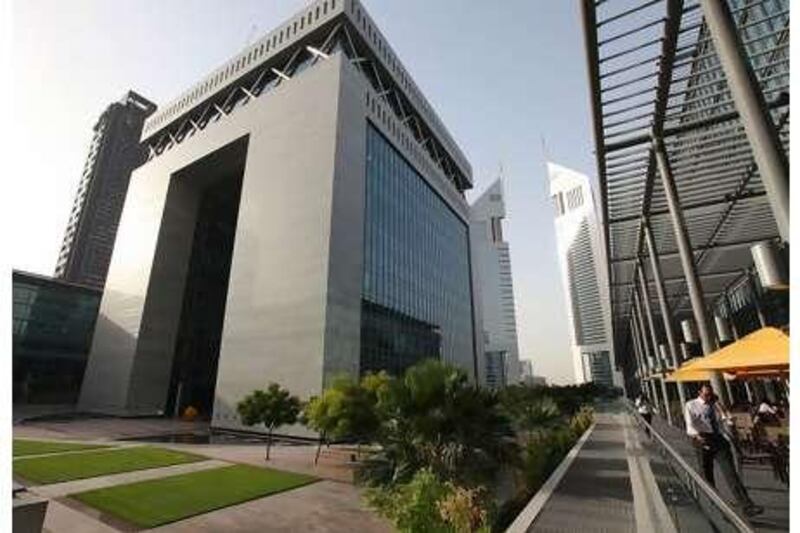Tabarak Partners, a Sharia-compliant finance company in the middle of a dispute involving its founding partners, has been wound up by a judge in the Dubai International Financial Centre (DIFC) Courts. Sir John Chadwick on Monday ordered the company's liquidation after the partners were unable to reach an agreement. Tabarak will be the first Islamic advisory company in the free zone to be wound up by the courts and represents the fourth insolvency case in the DIFC Courts.
Sir John had previously ordered that the parties allow the business to continue operating while Khuram Hussain attempted to buy out the other partners' stakes. Mr Hussain, who is also the senior executive officer, had filed a case in which he asserted that the partners were not allowing the business to operate because of a dispute over its performance. The efforts that followed Sir John's previous order failed after a provisional liquidator appointed by the courts discovered the company was not in compliance with the DIFC's regulations for compiling financial statements and recording transactions.
"There are no audited accounts for any years since the end of 2007," Sir John wrote in his judgment, pointing out that Article 28 of the DIFC Limited Liability Partnership Law required that audited financial statements be prepared for each financial year. "Those requirements have not been met: they have not been met because the parties have not been in a position to agree what the accounts should show."
In his original court filing, Mr Hussain requested that the other partners, Hussain al Awlaqi, Andrew Clout and Ziad Baya'a, be ordered to allow the business to continue operating by signing resolutions they had previously refused to approve. Mr Baya'a, the finance officer, allegedly "refused to act in the best interest" of the company by not renewing its licence, dismissing employees and "failing to act jointly with Mr Hussain in the proper discharge of the functions of the executive partners pursuant to the partnership agreement".
The respondents said in a counterclaim that Mr Hussain was "not what he had held himself out to be" with regards to expertise in Islamic finance and that the proposed resolutions were not in the best interest of the company. "He would indulge in 'cut and paste' jobs and showed absolutely no command over the subject of Islamic finance whatsoever," the counterclaim said. Mr Baya'a also denied Mr Hussain's assertions.
The three respondents also claimed that Mr Hussain had broken the partnership agreement by taking a new job at a Bahraini bank and appointing his brother as the senior executive officer of Tabarak Partners "in complete disregard to his duties and responsibilities". "The claimant was commuting to Bahrain on Sundays and only stopped at the office to collect his personal mail," the counterclaim said, adding that no "substantive business was generated since July 2008 when the claimant deserted his position at Tabarak Partners".
Sir John did not issue a judgment on these assertions. On December 8 last year, a lawyer for Mr Clout and Mr al Awlaqi filed a petition to wind up the company. Sir John ordered on January 24 that all proceedings be stayed until the provisional liquidator had prepared a report on the company's financial position. In July 2007, Tabarak Partners was authorised by the Dubai Financial Services Authority, the regulator of the DIFC, to provide Sharia structuring and advisory and investment distribution products. It was granted a licence to advise on financial products and arrange credit and investment deals.
Tabarak's website said the company had executed Sharia-compliant transactions worth more than US$1 billion (Dh3.67bn). Its clients included STIC Investments of South Korea, National Commercial Bank and Arbah Capital of Saudi Arabia and Tricon Trade Management of Bermuda, according to court documents. bhope@thenational.ae





